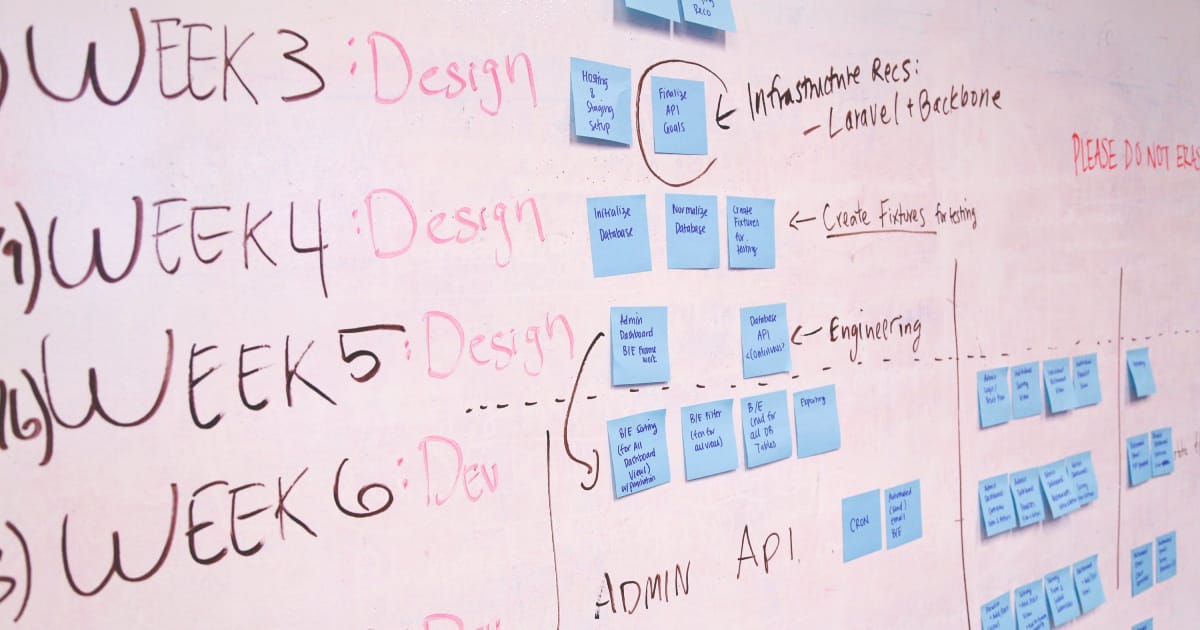7 Ways to Stay Focused on Your Business Goals

In the fast-paced world of business, staying focused on your goals is essential for success. Whether you're an entrepreneur launching a startup or a seasoned business owner looking to expand, maintaining concentration on your objectives can be challenging amid the myriad of tasks and distractions.
However, with the right strategies, you can enhance your focus and increase the likelihood of achieving your business goals.
1) Set Clear and Specific Goals

At the core of sustaining concentration on business objectives lies the establishment of explicit and well-defined goals. Ambiguous or excessively broad goals can be counterproductive, fostering confusion and hindering the ability to maintain focus. Precision is paramount in this process; articulating your goals in meticulous detail ensures a clear path forward. By outlining specific outcomes you aim to achieve, you not only provide a roadmap for your endeavors but also cultivate a heightened awareness of your overarching purpose. This clarity becomes a guiding force, acting as a persistent reminder of the direction in which your efforts are dedicated.
Furthermore, setting clear objectives transcends mere task delineation; it encapsulates a strategic approach to goal attainment. The act of defining goals in detail fosters a comprehensive understanding of the steps required for success. It transforms aspirations into actionable items, enabling a systematic and purposeful pursuit of milestones. In essence, the clarity achieved through specific goal-setting acts as a catalyst for motivation, aligning every effort with a defined purpose and contributing to the overall efficacy of the business pursuit.
2) Prioritize Your Tasks

Once the contours of your business goals are clearly defined, the next critical step is to systematically prioritize tasks according to their significance and alignment with your objectives. Recognizing that not all tasks carry equal weight, focusing on high-priority activities becomes imperative to navigate the myriad challenges and competing demands. By allocating your time and resources judiciously to tasks that directly contribute to your overarching goals, you not only enhance your productivity but also ensure a steadfast progression towards the realization of your business objectives.
To streamline this process, leverage modern tools and technologies that facilitate effective task management. Task management apps and project management systems offer invaluable assistance in organizing and prioritizing your workload. These tools enable you to categorize tasks based on urgency and importance, providing a structured framework to approach your daily responsibilities. Harnessing the power of these tools enhances your efficiency, allowing you to navigate the complexities of business operations with a strategic focus on the tasks that contribute most significantly to the achievement of your defined goals.
3) Create a Realistic Timeline

Establishing deadlines for your business goals is a pivotal strategy in instilling a sense of urgency and accountability within your endeavors. Deadlines create a structured framework, compelling you and your team to stay focused and motivated towards achieving specific milestones. They serve as a powerful tool for time management, ensuring that tasks are completed in a timely manner and progress remains consistent. However, striking a balance is essential, as unrealistic and overly ambitious deadlines can have adverse effects, leading to burnout and diminished focus.
While the urgency provided by deadlines is crucial, it's equally important to set realistic timelines that align with the intricacies of your business tasks. Each goal and associated tasks vary in complexity, and a one-size-fits-all approach to deadlines may undermine the quality of your work. It's imperative to assess the intricacies of each task, considering factors such as resources, potential challenges, and required effort. Crafting timelines that allow for steady progress without compromising quality not only guards against burnout but also ensures that your team can maintain sustained focus on the intricate details necessary for successful goal attainment.
4) Limit Distractions

Distractions pose a significant challenge to maintaining focus in any work environment. Identifying and mitigating potential distractions is crucial to fostering a productive and focused atmosphere. A proactive approach involves assessing your work environment for common disruptors and taking strategic measures to minimize their impact. This may entail turning off non-essential notifications on your devices to prevent constant interruptions, establishing designated periods for checking emails rather than responding immediately to every notification, and creating a dedicated workspace that cultivates an atmosphere of concentration and minimizes external disruptions.
To combat distractions effectively, consider implementing a combination of behavioral and environmental strategies. Cultivate a habit of setting specific periods for focused work, free from unnecessary interruptions. Simultaneously, structuring your physical workspace to enhance concentration can involve organizing materials, reducing visual clutter, and creating a comfortable, ergonomic environment. By addressing distractions systematically, you create a conducive space that empowers sustained focus, enabling you to tackle tasks with greater efficiency and achieve your business goals more effectively.
5) Take Breaks Strategically

Contrary to common belief, incorporating strategic breaks into your work routine can significantly boost focus and overall productivity. Breaks act as a crucial buffer against burnout by providing valuable moments for mental rejuvenation. When engaged in continuous work without intervals, fatigue can set in, diminishing cognitive abilities and hindering overall performance. By deliberately allocating time for breaks, you create opportunities for your mind to recharge, promoting sustained concentration and preventing the detrimental effects of prolonged, uninterrupted work sessions.
One effective technique for optimizing break intervals is the Pomodoro Technique. This method advocates for concentrated work periods, typically around 25 minutes, followed by a brief break. This structured approach harnesses the power of focused bursts of energy, maximizing productivity during work periods, while the short breaks serve as an essential reset. This cyclical rhythm not only prevents mental fatigue but also helps maintain a consistently high level of focus over extended periods, ultimately contributing to enhanced efficiency and goal achievement in your business endeavors.
6) Stay Adaptable

In the ever-evolving landscape of business, adaptability is a cornerstone of success. The dynamic nature of business environments often presents unforeseen challenges, and staying adaptable is essential for navigating these fluctuations effectively. Being open to reassessing and adjusting your goals as circumstances evolve allows for a proactive response to changes in the market, shifts in consumer behavior, or unexpected internal factors. This flexibility is not a sign of wavering commitment, but rather a strategic approach to ensuring that your business remains agile and responsive to the unpredictable nature of the industry.
Maintaining flexibility in goal-setting also serves as a safeguard against the risk of losing sight of your overall objectives in the face of unexpected challenges. Instead of rigidly adhering to predefined plans, the ability to reassess and adjust goals enables you to pivot when necessary, seizing new opportunities or mitigating potential threats. This adaptive mindset positions your business to not only endure unforeseen circumstances, but also to thrive by leveraging changing conditions to your advantage. In essence, staying open to adjustments in your goals fosters resilience and positions your business for sustained success in the midst of a dynamic and ever-shifting business landscape.
7) Celebrate Milestones

Acknowledging and celebrating achievements, regardless of their scale, plays a pivotal role in maintaining motivation and focus on the path toward larger goals in business. Each milestone reached signifies progress and accomplishment, instilling a sense of pride and satisfaction. By taking the time to recognize these smaller victories, you create a positive feedback loop that reinforces the value of your efforts. This acknowledgment serves as a powerful motivational tool, inspiring a continued commitment to the pursuit of overarching business goals.
The act of celebrating milestones goes beyond mere recognition; it actively contributes to cultivating a positive mindset essential for sustaining long-term focus. A positive outlook fosters resilience in the face of challenges, helping to navigate setbacks with determination and a constructive attitude. Embracing a celebratory mindset not only enhances the overall work experience but also serves as a self-reinforcing mechanism, fueling the motivation needed to persevere through the ups and downs inherent in the pursuit of significant business objectives. In essence, the practice of recognizing and celebrating achievements becomes a cornerstone for maintaining a resilient and positive mindset that propels ongoing dedication to long-term goals.
Final Thoughts
In conclusion, staying focused on your business goals requires a combination of strategic planning, effective time management, and adaptability. By setting clear goals, prioritizing tasks, managing distractions, and celebrating successes, you can enhance your ability to concentrate on what matters most and achieve lasting success in your business endeavors.





